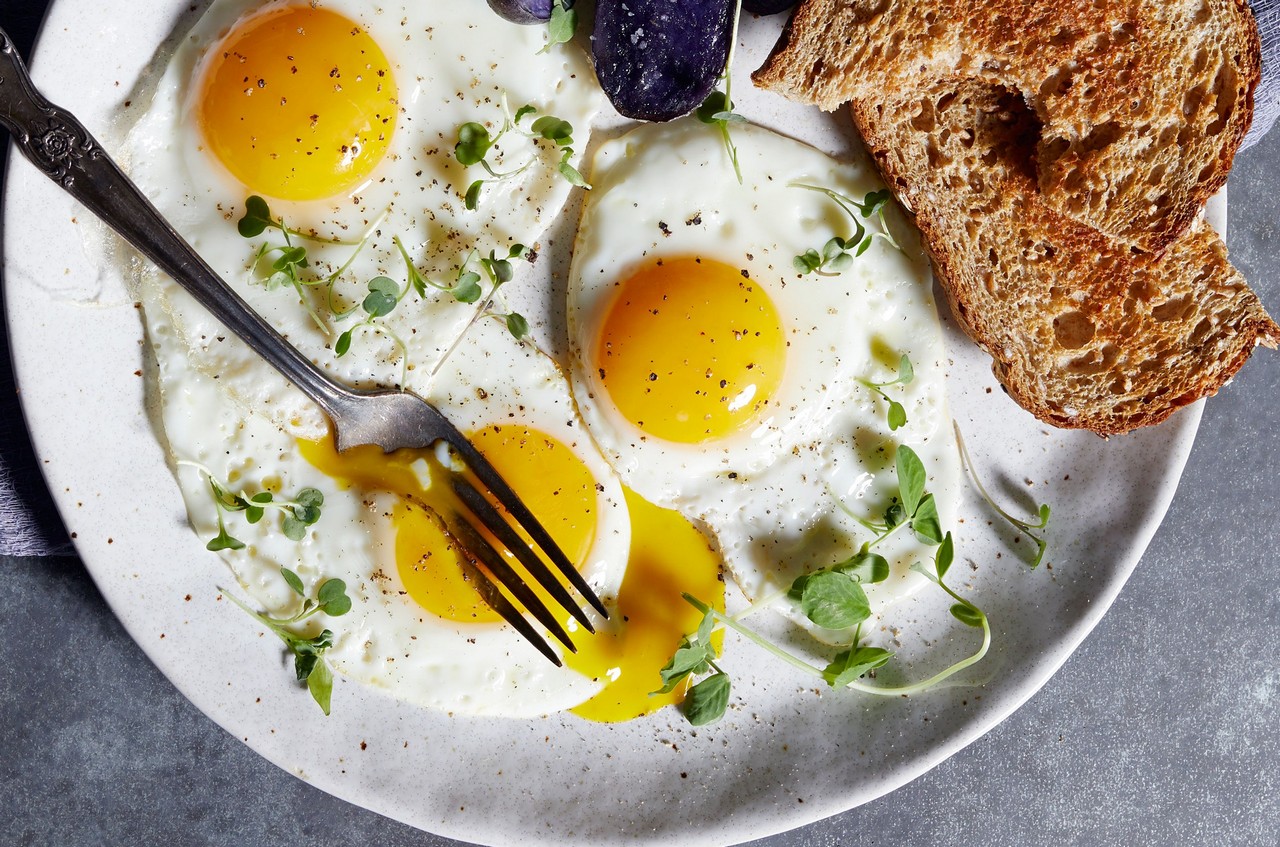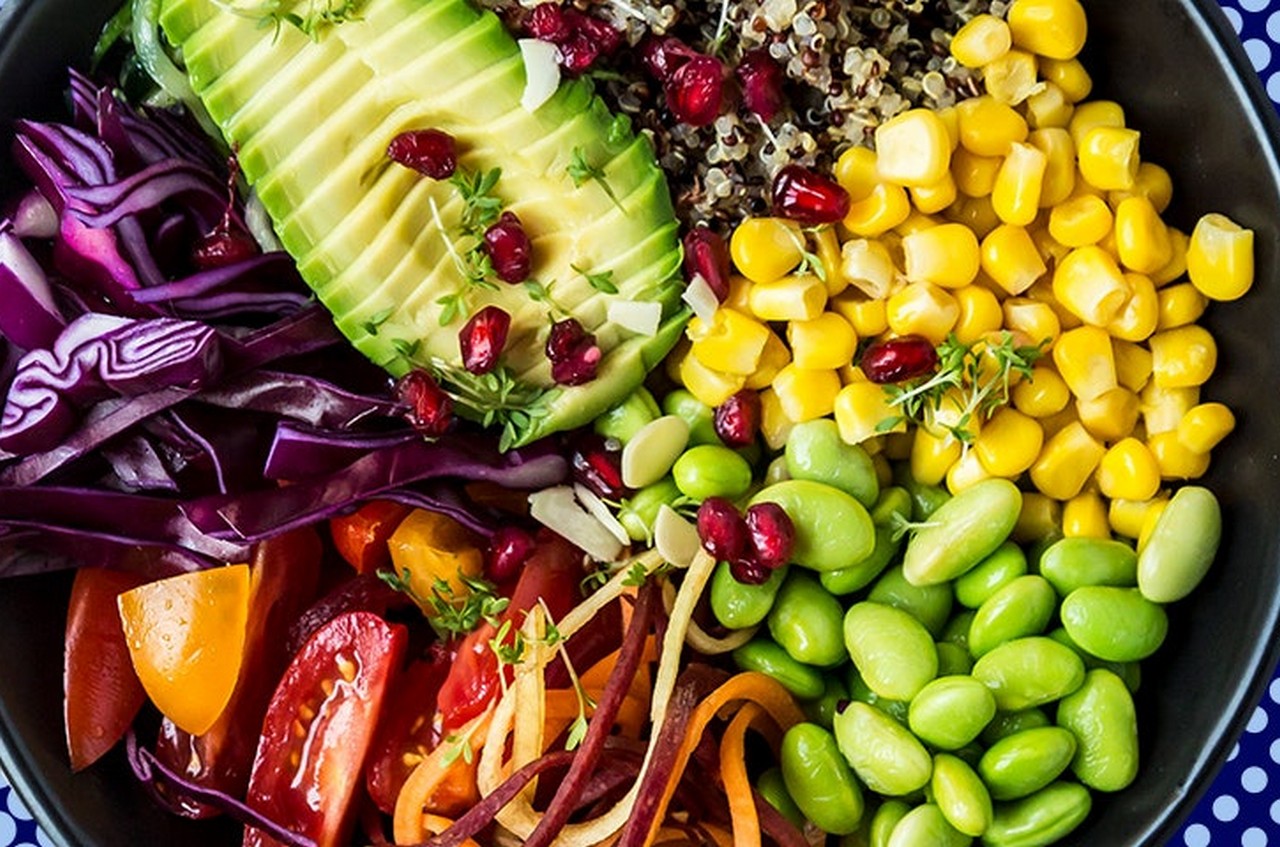What the Dietitians Who Invented Intuitive Eating Think About Diet Culture Today
Intuitive eating has become wildly popular in the past couple of years, but the one-of-a-kind anti-dieting framework has actually been around for 25 years now. The first edition of Intuitive Eating was published in 1995 by dietitians, eating disorder specialists, and nutrition therapists Evelyn Tribole, M.S., R.D.N., and Elyse Resch, M.S., R.D.N. The revolutionary book laid out the ten principles of their mind-body approach to finding peace and freedom with food and body—a personal process that empowers people to reconnect with their own internal wisdom about eating.
Last month, Tribole and Resch published the fourth edition of their definitive text, at a time when the number of people questioning or in open revolt against diet culture has never been greater—or the embrace of intuitive eating wider.
More broadly, of course, this is a profound and precarious moment full of challenges (the pandemic) and opportunities for transformative change (the movements against anti-Black racism). “It’s kind of interesting that our book came out today in the midst of everything that’s going on in the world, especially during this time of looking for social justice in every possible way,” Tribole tells SELF. “We’re in this time of great uncertainty on so many levels, and with that uncertainty is all this potential for revolution—at an internal level, at a community level, and on a global level,” Tribole explains. “We need to have energy in order to be part of that. And if you’re dieting, you’re going to be preoccupied.”
SELF spoke with the authors about what’s new in this updated version, the evolution of intuitive eating, the ways that their work is connected to current events—and what they are still learning.
This interview has been edited and condensed for clarity and length.
SELF: Why did you want to publish a new edition now?
Tribole: There are many reasons. When we first started Intuitive Eating, 25 years ago, we could say it was research-inspired, inspired by our clinical experience working with clients. But fast-forward to today, and we have more than 125 studies on our work really showing an impact.
Also, a lot has changed. We wanted to really address diet culture. It’s so shape-shifting and so pervasive—we were seeing clients who don’t really identify with the term dieting. They’ll say, “Oh, I don’t diet, I do the keto lifestyle.” We were like, Ooh, we need to address that. We need to address Health at Every Size.
And we actually made significant changes to the principles of intuitive eating. The core is still the same, but we changed the [principle] on coping with your emotions. We used to say, “Cope with your emotions without using food,” but [emotional eating] has become so pathologized in diet culture. Elyse and I really gave it a lot of thought and changed it to “Cope with your feelings with kindness.” And during this time of COVID, we’ve really just seen more how important that is. And then we also changed the term exercise to movement, again because it’s been so militarized and pathologized in our culture.
Resch: We wanted to spend a lot of time looking at weight bias and weight stigma, because we haven’t in the past. Our third edition came out in 2012, and we thought we had been dealing with that. And yet we were stunned at some of the language we had used. We were really wanting to give ourselves a lot of grace because—this applies to many areas—you only know what you know when you know it. And when we wrote the first edition of the book 25 years ago, we were not evolved in the way we are today. So we looked at the book with a very critical eye to make sure we were removing any kind of stigmatizing language and helping people move more toward self-acceptance and self-love in a deeper way.
Tribole: Just to add to what Elyse is saying, that was actually really humbling to go back and be wincing, saying, ‘Oh, my God, we wrote that? How did that get through?’ But you know, we’ve also really decided to be transparent about this—that we all evolve and grow and change.
I think ultimately, with where we’re at in today’s world, we need to have more humility. We need cultural humility, we need intellectual humility, we need lived experience humility. And now looking at the intersection of racism and diet culture, that’s really profound. We touched on it, but we didn’t really unpack it in this edition. So I still see a fifth one coming out!
[Both laugh]Resch: Oh, Evelyn!
Tribole: Well, I’m just saying! Really doing a deep dive, and then looking at our own internalized racism. Doing unlearning, doing learning, and then looking at and analyzing our model in terms of how we can do better. Because if we don’t address racism, I don’t think we’re ever really going to effectively address fat phobia and weight stigma. So we have a lot of work to do.
A lot of us are doing a lot of learning and unlearning right now, so I think it’s important for people to have examples of humility and learning.
Resch: We promote so much self-compassion throughout the book and with everyone we talk to. And self-compassion includes having this humility and not being angry at ourselves. As I said before, we can only know what we know when we know it. And then it’s what we do with that once we are awakened to that new understanding…. We need to be learning every day, and we need to be speaking up every day.
Tribole: When we start looking at diet culture being rooted in racism—I’m happy to say, we cite Sabrina Strings’ book, Fearing the Black Body: The Racist Origins of Fatphobia. And one of the things we say in this edition is that today we have not only the fitness industry, the weight-loss industry, but we have medical care and health care being part of diet culture. Which is really, really frustrating. Because now we have patients coming in with this pressure to change their body not just from culture, but from health care.
Most Popular
- 5 Less Obvious Signs of Seasonal Depression You Should Definitely Pay Attention To
By Maggie O’Neill
- 42 Creative Valentine’s Day Gifts for Guys
By Sarah Madaus
- Just Some Fun Sex Toys You and Your Partner Will Love
By Gabrielle Kassel
And this is happening even though we have a profound body of research showing that the act of dieting—the act of cutting your food intake for the purpose of shrinking your body—not only does it not work, it actually causes harm, biological harm, psychological harm. It increases the risk of eating disorders and weight stigma. When you look at the fact that eating disorders rates have doubled, it’s really a travesty. I think it is in part because diet culture has become so normalized. You know, people didn’t used to go bragging about keto or the latest fast they were on. And it’s like, “Wow, we have a lot of work to do, Elyse!”
Resch: We also have to spend a lot of time also educating the medical community because there’s a whole belief system on weight and the dangers of what they consider “excess weight,” so we have a lot of work to do.
Why do you think intuitive eating has really caught fire recently?
Resch: So, I’m a feminist from the second wave of feminism, back in the ’70s. And I think we have gotten to a point where we do not want to be told how we should look, how we should eat…a point where we really need to take back the pleasure of eating, the satisfaction in eating, and make decisions for ourselves in an autonomous way.
It’s been kind of viral, with so many magazines and online articles talking about intuitive eating in this past year. And I think there’s something to do with the political environment…. We are getting to a point where we’re tired of being told what to do, and we’re tired of feeling unsuccessful and bad about ourselves.
Tribole: People are tired of being told, “There’s something wrong with you, there’s something wrong with your body,” when it turns out, no, it’s our culture. And you can take your power back. The idea is to reclaim the pleasure of eating. Eating is supposed to be enjoyable! It’s become this source of shame and guilt, when it’s really intended to be a source of pleasure and connection with other people. And when you get that back, it’s incredible. You’re more alive, you’re more present in your relationships without being preoccupied.
Resch: It’s liberating. The less you’re worried about doing something wrong in your eating and the more tuned in you are to your own body. It opens this space for bringing more meaningful things into life, when you take out that one huge piece that’s on so many people’s minds.
Tribole: And yet when people are in marginalized bodies, they want to feel safe in the world, so it’s also understandable that during this time of great difficulty people have been feeling triggered to get back into dieting. Because diet culture offers certainty at a time of uncertainty. It offers fantasy, and hope, and specific rules that keep your mind off of the anxiety of what’s going to happen in the world. But the problem is, it’s short-lived. I also work with a lot of people who’ve been triggered by this time, and I say it’s understandable because diet culture’s everywhere.
Most Popular
- 5 Less Obvious Signs of Seasonal Depression You Should Definitely Pay Attention To
By Maggie O’Neill
- 42 Creative Valentine’s Day Gifts for Guys
By Sarah Madaus
- Just Some Fun Sex Toys You and Your Partner Will Love
By Gabrielle Kassel
Resch: I think you’re right, Evelyn. It’s just this false sense of control in a world where there is no control. So we do want to have compassion for people who do take that route and help them understand the psychology of why they are doing that. But there’s a lot of relief that comes when you let go of the belief that you can use something like dieting to give yourself a sense of control of the world, real control, when there isn’t any. You go on a diet to try to control things, and it doesn’t work out, and it’s certainly not going to fix the pandemic.
Tribole: I’m also thinking about the obsession with toilet paper. I have never in my life ever focused on toilet paper, and then all of a sudden, I’m like, “Do I have enough? Is it there?” And that’s what it’s like with dieting. All of a sudden you want what you can’t have, you want what is in short supply, and you become fixated on that. I think it’s an apt metaphor for making peace with food, and what happens when you don’t make peace with food.
No 2 People With Depression Have the Exact Same Experience — a Psychologist Explains
One in five US adults experienced mental illness in 2019. Toward the end of 2020, a year t…
















